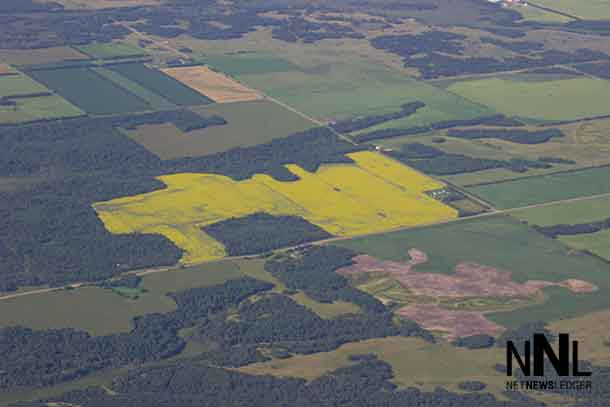Consumers are seeing first-hand how climate impacts their pocketbooks
By Sylvain Charlebois
Professor
Dalhousie University
COP26 is just around the corner – the 26th United Nations climate change conference starts in Glasgow on October 31.
During the two-week summit, delegates face the colossal task of bridging the gap between the climate commitments made in 2015 with the Paris climate accord and the significant transformations needed to tackle our current climate situation.
This global summit is meant to give the planet a new, more pragmatic focus on what we need to do to reduce carbon emissions and meet our Paris goals. Canada has agreed to reduce its greenhouse gas emissions to 30 per cent below 2005 levels by 2030.
The planet is experiencing an increasing number of extreme and unprecedented weather patterns. Last summer, the Northern Hemisphere was hit by extreme drought and heatwaves in Russia, Canada and the United States. Floods also affected parts of Europe.
All of that is in part why procuring inputs for food companies has been a challenge. Consequently, food prices are going up everywhere in the world, including Canada. Consumers are seeing first-hand how climate impacts their pocketbooks.
The fact that Mother Nature is affecting food prices isn’t new. What is new is how frequent and acute weather patterns have become. Even climate-change skeptics are starting to realize the world is offering the agri-food sector a new normal to deal with.
The challenge with these climate events is twofold.
For one, they often attract the same policy junkies who will figure out a path to save the world from itself without celebrating some of the things we’ve already done to help the planet. Others won’t understand how agriculture and the agri-food sector have adapted to an unforgiving climate.
Farmers, arguably the best environmental stewards in the world, have come a long way with more sustainable practices. Those with farms of some scale have largely been faithful to the ongoing progress of soil and animal science, which needs to be celebrated.
Any effort to sequester carbon needs to be rewarded across the food supply chain, starting at farmgate. The stick approach largely dominated by a carbon tax can be influential, but so will carrots, especially in the agri-food sector. In that sector, risks must be avoided at all costs, given the low margins and the competitive environment most companies operate in.
Secondly, for far too long, many people have weaponized science to discredit policy tools that would implement sustainable changes. The activists fostering the woke culture and the climate-change skeptics need to stay clear of this process. COP26 needs to cut through the noise and get the world to appreciate the true value of some mechanisms at our disposal to make our planet a cleaner place.
Pricing carbon, for example, is arguably one of the most powerful tools to curb carbon emissions. The concept of a carbon tax isn’t popular in some spheres but it’s not as bad as some groups would suggest, especially for Canada.
With our abundant land, access to clean water and clean energy, Canada’s agri-food sector is poised to do well in a world in which carbon is priced effectively. It’s not a coincidence that we’ve recently seen companies like AB InBev, Kraft Heinz, Lovingly, Nestle and Roquette invest in Canada by building new processing plants. A stronger, more robust domestic processing sector will empower our agri-food sector to control its carbon footprint.
For the longest time, global food supply chains were designed and motivated by our collective race to the bottom, looking for the cheapest deal possible for producing, processing or packaging our food. For example, eating peaches grown in Argentina, processed in Malaysia and bought here was quite common.
The goal to offer low prices will obviously remain, but an economy that prices carbon will compel companies to seek different markets with more localized operations.
We expect more nearshoring or onshoring in Canada for the next while, which can be good for Canada but only if other countries are reciprocal with their carbon taxes. That’s why COP26 and achieving our goals at the same time is critical.
However, we need to leave our farmers alone when pricing carbon since they don’t have the ability to pass extra costs down the food chain. That’s why it was vital that Bill C-206, to exempt all farm fuels from the federal carbon tax, received Royal assent weeks before the Sept. 20 federal election.
But there’s one major problem. The carbon tax in Canada is set to reach $170 a tonne by 2030 and will hit $50 a tonne next year, as promised by the newly-elected Liberal government.
Nobody really knows how such a high tax will affect food security for consumers. The federal government either doesn’t have any information on the issue – no report or analysis – or hasn’t made anything public. And we all need to know.
Dr. Sylvain Charlebois is senior director of the agri-food analytics lab and a professor in food distribution and policy at Dalhousie University.
The views, opinions and positions expressed by all columnists and contributors are the author’s alone. They do not inherently or expressly reflect the views, opinions and/or positions of NetNewsLedger.

